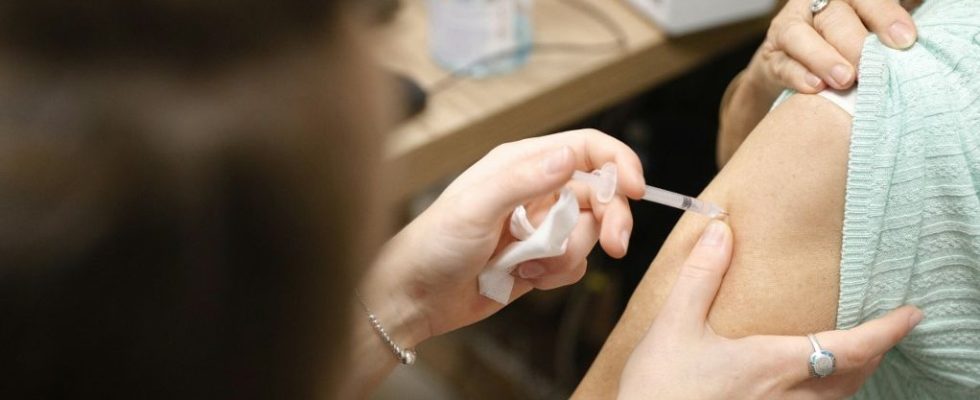The risk of menstrual disorders is slightly increased during the three months following the administration of an anti-Covid messenger RNA vaccine, suggests a study released this Wednesday by the French health authorities, while such a link remains debated in the scientific community.
The study “shows a 20% increase in the risk of heavy menstrual bleeding requiring hospital treatment within one to three months”, after having received a Pfizer vaccine or Moderna, summarizes in a press release the Epi-Phare organization, which brings together the medicines authority and Social Security, in particular responsible for the protection of individuals in terms of health.
Since the start of anti-Covid vaccination campaigns, almost two and a half years ago, many women have reported disruptions in their menstrual cycles. Based on these statements, the European Medicines Agency (EMA) ended up including the presence of heavy menstrual bleeding as a possible side effect of messenger RNA vaccines, those from Pfizer/BioNTech and Moderna. However, studies on the subject remain contradictory. That of Epi-Phare gives arguments to those in favor of the existence of such a link.
A temporary disorder
The researchers identified the vaccination status of several thousand women hospitalized for heavy menstrual bleeding in 2021 and 2022. They compared their situation to a control group of women who had not been treated for this reason. Ultimately, they conclude that the risk of such a menstrual disorder is slightly higher the first time a woman receives a Moderna or Pfizer vaccine, each administered in two successive doses. The risk lasts for three months and then, even after a subsequent booster dose, disappears.
These results contrast with those of a large-scale study carried out in Sweden and published in spring 2023 in the BMJ. This had estimated that there was no solid evidence of a link between Covid vaccination and menstrual disorders. Asked about these different conclusions, Epi-Phare researchers cited differences in methodology.
They note in particular that the Swedish study took into account a risk period which began barely more than a week after the patients’ vaccination. Such a choice “could have led to masking a possible increase in risk occurring a little later,” explained epidemiologist Rosemary Dray-Spira, who supervised the French study, with the latter choosing instead to wait. one month after the first dose of vaccine.

